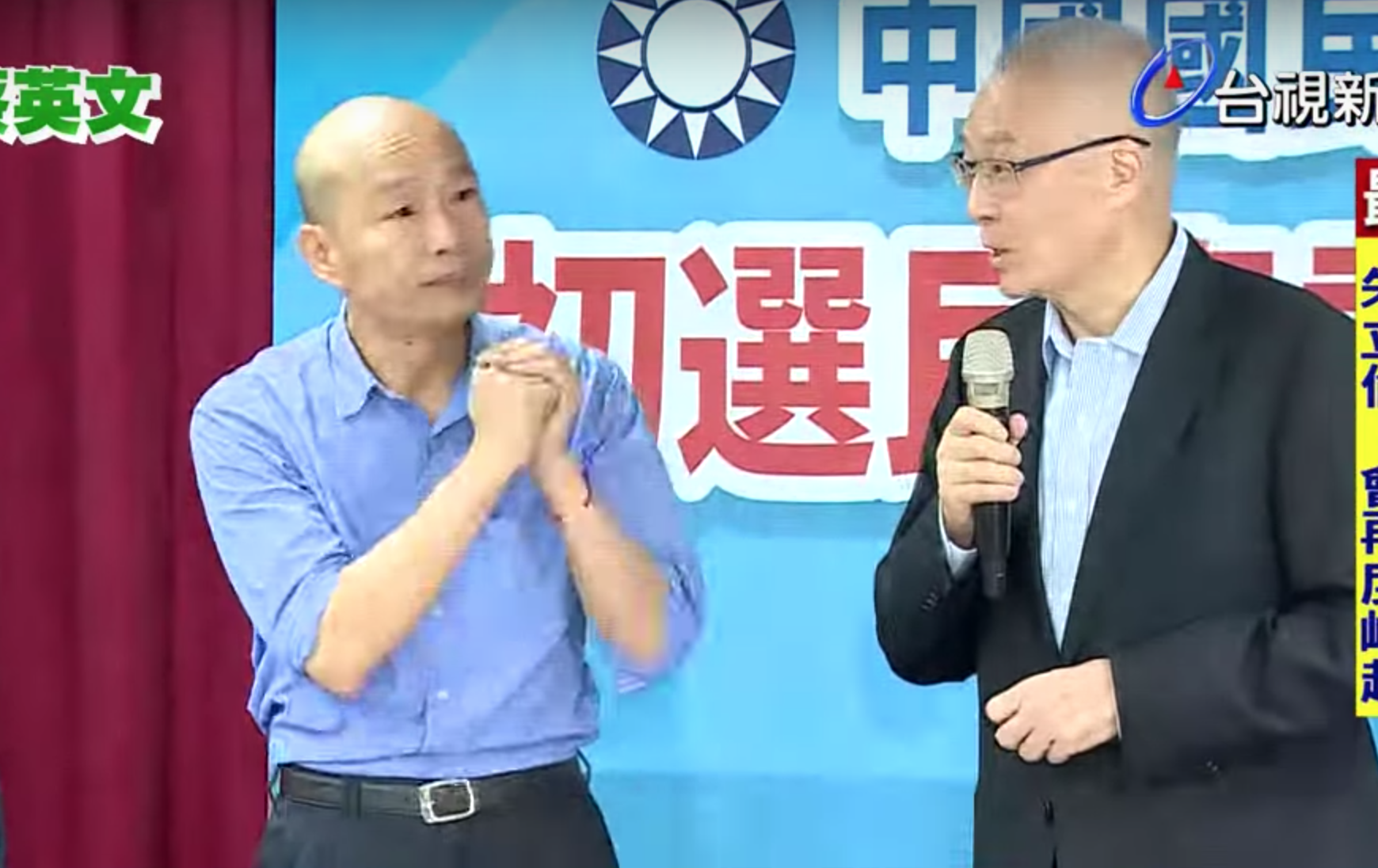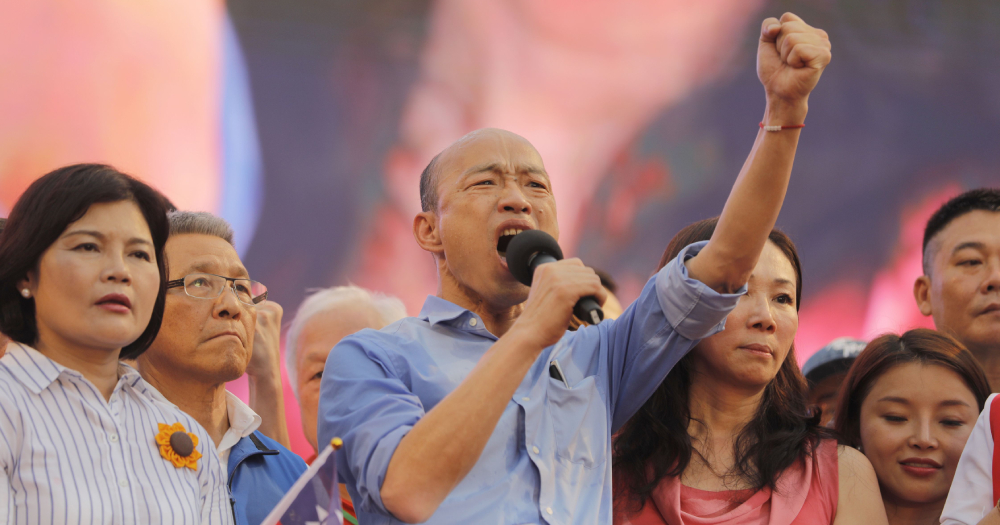Taiwan's highly popular Kaoshiung mayor, Han Kuo-yu, has won the Kuomintang's (KMT) nomination to represent the party in January 2020’s presidential election.
Han, who has only been mayor for about seven months, is set to challenge incumbent Tsai Ing-wen, of the pro-independence Democratic Progressive Party (DPP).
Bitterly fought primaries
Han has emerged from the bitterly fought primaries with 44.8 percent of the public's support, KMT vice-chairman Tseng Yung-chuan announced on Monday, July 15.
 Screenshot via TTV News
Screenshot via TTV News
Foxconn's billionaire founder Terry Gou, who recently rose in popularity and was seen as Han's closest challenger, trails behind with 27.7 percent.
While Gou remained silent about his intentions after the results were released, his spokesperson said hours later that he never considered leaving the KMT to run for the presidency as an independent, Bloomberg reported.
The week-long voting was done through telephone polls.
Analysts said the fierce campaigning by Han and Gou, along with three other KMT candidates, threatened to divide the party and reduce its chances of success in the 2020 presidential election, the South China Morning Post (SCMP) reported.
Han's pro-Beijing stance might backfire
While Han's pro-Beijing stance has not been popular in Kaohsiung, a southern city known for its fierce Taiwanese pride, he was successfully aided by his straight-talking style and promise to revive the city's economy.
Before Han's victory, the city has been controlled by the DPP for two decades.
However, his Beijing leanings -- he met senior Beijing officials in both Hong Kong and Shenzhen -- might prove to be disadvantageous to his presidential bid, given the current political climate.
What's happening in Hong Kong is affecting Taiwan now too
Hong Kong's anti-extradition bill protests have found solidarity in Taiwan, similar to how the Taiwanese empathised with Hong Kong during the 2014 Occupy Central movement.
Many Taiwanese have also cautioned against the "one country, two systems" framework which Chinese President Xi Jinping has lauded as an arrangement that Taiwan can follow to rejoin the "motherland", saying "Today Hong Kong, Tomorrow Taiwan".
Han had earlier refrained from commenting on the Hong Kong protests, while Gou had been more forthright in criticising the "one country, two systems", a move which analysts say had helped Gou gain some ground.
He had also replied, "I don't know", when asked about his thoughts on the Hong Kong protests, reported Taiwan News.
Not taking a stance against Beijing is costly
Following the backlash he received for his comments, Han moved to limit the damage caused, saying there will never be a "one country, two systems" arrangement in Taiwan, unless "over [his] dead body", Focus Taiwan reported.
He had also criticised the Hong Kong government for "not heeding its citizens".
Tsai might attack Han's pro-Beijing stance
Han's cosying up to Beijing might be an easy target for Tsai to pick on.
In return, Han might find an edge over Tsai when it comes to the economy.
Many Taiwanese has blamed Tsai for the sluggish economy, although it performed better than it did towards the end of former president Ma Ying-jeou's term, according to Nikkei Asian Review.
And this is a view that is promoted by most pro-Beijing or KMT-aligned media.
Tsai the only one who dares to stand up to Beijing?
But Beijing's hardline stance towards Taiwan, and even Hong Kong, is only going to aid Tsai.
Tsai has recently risen in popularity as she was perceived as the only leader in Taiwan who is prepared to stand up to Beijing, according to SCMP.
We stand with all freedom-loving people of #HongKong. In their faces, we see the longing for freedom, & are reminded that #Taiwan’s hard-earned democracy must be guarded & renewed by every generation.
— 蔡英文 Tsai Ing-wen (@iingwen) June 9, 2019
As long as I’m President, “one country, two systems” will never be an option. https://t.co/yYckfeNxw0
Relations between Taiwan and China have taken a dip after Tsai took office in May 2016.
Tsai has refused to affirm the "1992 Consensus", which is a mutual agreement that there is only "one China", although both sides interpret it differently.
On the other hand, Han has reiterated his support for the "consensus".
China has not ruled out the use of force to take the self-ruling island under its control.
Related story:
Mildly related story:
Top image via Daniel Shih/AFP/Getty Images
If you like what you read, follow us on Facebook, Instagram, Twitter and Telegram to get the latest updates.
